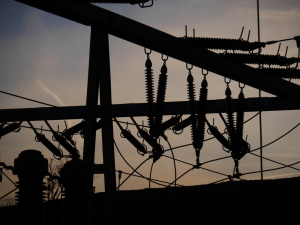Business and Economy
DOE pushes for coal-fired power plants to support electric cooperatives
DUMAGUETE CITY — The Department of Energy (DOE) explained Wednesday that although its mission is to ensure sustainable, stable, secure, sufficient and accessible energy, like solar energy, it still needs the coal-fired power plants as baseloads for electric cooperatives all over the country.
Lou Arciaga of DOE in the Visayas told a Kapihan forum Wednesday that solar energy is necessary to reduce dependents on conventional energy sources but government cannot rely on it 100 percent because of its nature which is dependent on the sunlight that is sometimes intermittent to households.
However, Arciaga said, this is a challenge for government in going 100 percent renewable, in response to suggestions from one of the reactors, Leo Mamicpic to go 100 percent renewable among households.
She said during the forum that the suggestion is technically impossible. In fact, government is putting a cap of up to 500 megawatts in order not to affect the grids that will instead cause more brownouts.
It may sound simple for households to go 100 percent renewable in converting solar energy into electricity, but it can help during peak hours where demand of electricity is high, Arciaga pointed out.
She cautioned the public against buying substandard solar kits and solar powered gadgets being peddled in the barangays especially in the hinterlands due to reports these gadgets are being sold without briefing on proper load management, no addresses of suppliers in case of damage, no warning of overuse that may cause damage to the batteries, among others.
According to the DOE official, they even received reports farmers sell their carabaos to be able to acquire solar gadgets in hinterland barangays.
This developed as three residents in Dumaguete have their respective residential houses already installed with solar panels and interconnected with the local electric cooperative.
They are Galicano Sibala, Leo Mamicpic and Ebenezer Lim.
This was confirmed by Engr. Ruel Badon, in charge of the metering system of the Negros Oriental 2 Electric Cooperative (NORECO 2), during the same forum.
Engr Badon, however, explained, in case of power interruptions, solar-powered residences with net metering will also experience brownouts because the inverter of the solar panel is powered by NORECO 2.
He said the cooperative will not also allow switching to a stand-alone solar power in case of brownouts, because of the risks to linemen doing the maintenance and repair work.
Meanwhile, the association of municipal engineers in Negros Oriental is expected to meet to discuss regulations in issuing building permits for residential houses wanting to install solar panels.
Engr. Alma Ragay, municipal engineer of the municipality of Siaton told the Kapihan forum, it is a standard operating procedure to conduct an inspection first before mounting the solar panels to residential houses to check on the strength of the roof to prevent the possibility of collapse.






















